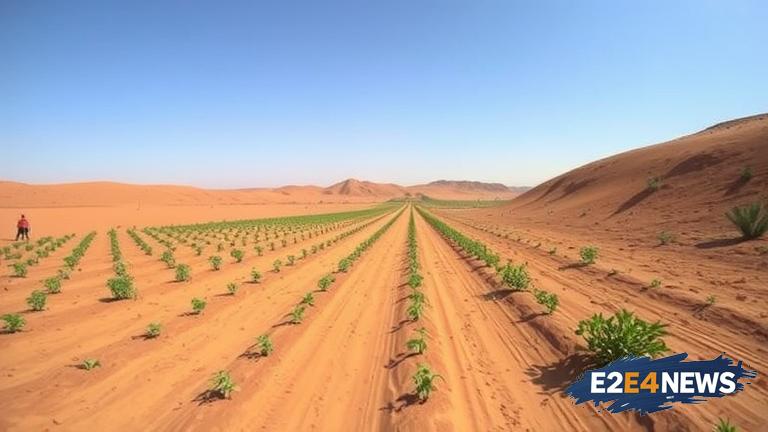Israel has been at the forefront of agricultural innovation, and its latest desert farming techniques are revolutionizing the way crops are grown in arid regions. With the global population projected to reach 9.7 billion by 2050, finding sustainable ways to produce food is becoming increasingly important. Israel’s desert farming methods are designed to boost crop yields while minimizing water consumption and reducing the environmental impact of farming. The country’s agricultural experts have developed advanced irrigation systems, soil management techniques, and crop selection methods that enable farmers to grow a wide range of crops in the desert. One of the key innovations is the use of drip irrigation, which delivers water directly to the roots of the plants, reducing evaporation and runoff. This method has been shown to increase crop yields by up to 30% while reducing water consumption by up to 50%. Israel’s desert farming techniques also involve the use of advanced soil management methods, such as mulching and cover cropping, which help to retain moisture and suppress weeds. Additionally, farmers are using advanced crop selection methods, such as genetic engineering and grafting, to develop crops that are better suited to the desert climate. These crops are more resistant to drought and heat stress, and are able to thrive in the harsh desert conditions. The Israeli government has also established a number of initiatives to support desert farming, including the provision of subsidies and training programs for farmers. These initiatives have helped to encourage the adoption of desert farming techniques and have contributed to the growth of the agricultural sector in Israel. The impact of Israel’s desert farming techniques extends beyond the country’s borders, with many other countries seeking to adopt similar methods to improve their own food security. In fact, Israel has become a major player in the global agricultural industry, with many of its farming techniques and technologies being exported to countries around the world. The use of desert farming techniques is not only beneficial for food production, but also for the environment. By reducing water consumption and minimizing the use of chemical fertilizers and pesticides, desert farming can help to reduce the environmental impact of farming. Furthermore, the use of advanced irrigation systems and soil management techniques can help to reduce soil erosion and improve soil health. Overall, Israel’s desert farming techniques are a major breakthrough in the field of agriculture, and have the potential to make a significant contribution to global food security. With the world facing the challenges of climate change, population growth, and food insecurity, the development of sustainable and innovative farming methods is more important than ever. Israel’s desert farming techniques are a shining example of what can be achieved through innovation and determination, and are an inspiration to farmers and agricultural experts around the world. The future of desert farming looks bright, with many new technologies and innovations on the horizon. For example, the use of drones and satellite imaging is becoming increasingly popular in desert farming, allowing farmers to monitor their crops and soil conditions more effectively. Additionally, the development of new crop varieties and advanced irrigation systems is ongoing, and is expected to further improve the efficiency and productivity of desert farming. In conclusion, Israel’s desert farming techniques are a major achievement in the field of agriculture, and have the potential to make a significant contribution to global food security. With their innovative approach to farming, Israeli experts are helping to pave the way for a more sustainable and food-secure future.
